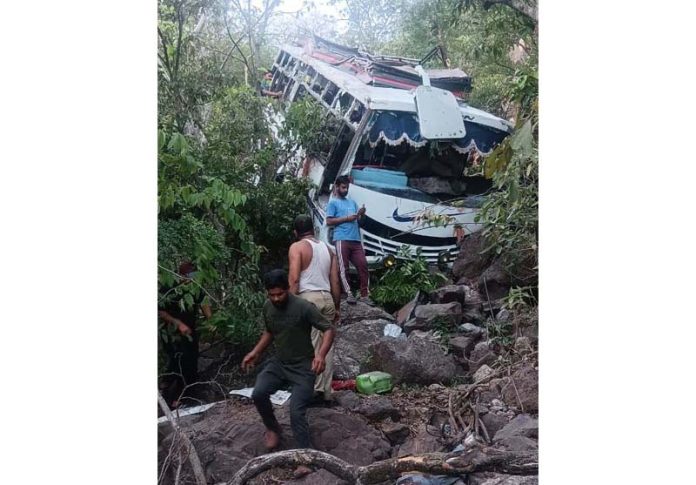The recent terror attack in Reasi marks a grim reminder of the consistent threat of terrorism in the region. This heinous act, which claimed nine lives and injured 43 others, predominantly non-locals and pilgrims, underscores the gravity of the situation. The premeditated attack, executed with ruthless precision, targeted the driver and the vehicle’s tyres, causing the bus to veer off the road and tumble into a gorge. This calculated manoeuvre ensured maximum casualties, demonstrating the attackers’ chilling intent and strategic planning. The timing of the attack, coinciding with the oath ceremony of the new Council of Ministers in the NDA Government, suggests a deliberate attempt to create widespread fear and mark their presence. The recurrence of such terror incidents signals an alarming trend that demands urgent and robust countermeasures. The immediate response by local villagers, who initiated rescue operations before the arrival of official help, saved many lives amidst the chaos. However, the attack also raises critical questions about the adequacy of security measures on routes frequented by pilgrims. Despite high alert levels, the terrorists managed to carry out their plan, highlighting potential lapses in surveillance and intelligence.
In response, a comprehensive and multi-layered security strategy is imperative. This includes enhancing intelligence networks, increasing the presence of security forces, and conducting regular area domination patrols, especially in vulnerable and remote regions. The establishment of a Joint Security Force Temporary Operation Headquarters is a positive step, but it must be complemented by sustained efforts to track and neutralise terrorist elements operating in the Rajouri-Poonch-Reasi belt. Additionally, there is an urgent need to foster community involvement in security protocols. The integration of Village Defence Guards and local volunteers into the broader security framework can provide valuable grassroots support. The Reasi terror attack serves as a stark reminder of major recurring security lapses and these glaring lapses must be accounted for. The government and the security apparatus must reassess and reinforce their strategies to safeguard the lives of civilians and pilgrims.


